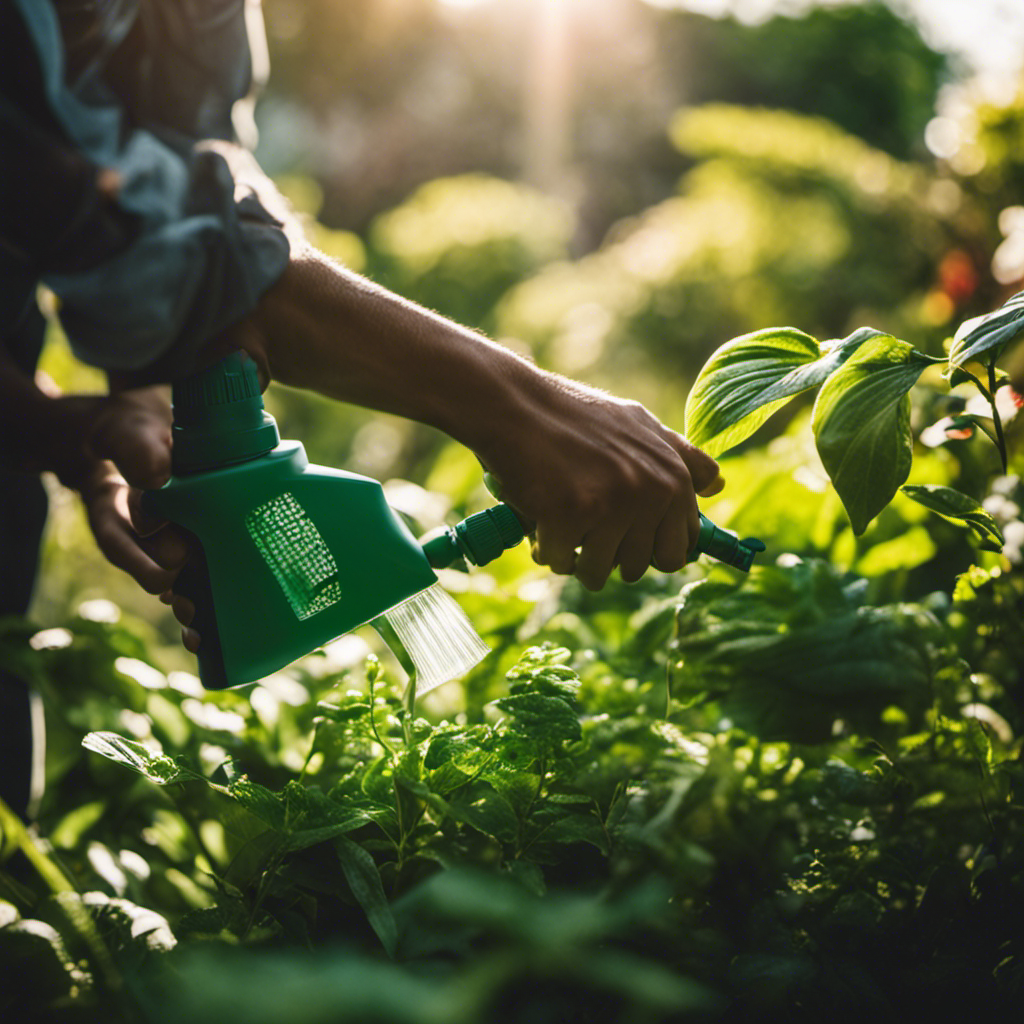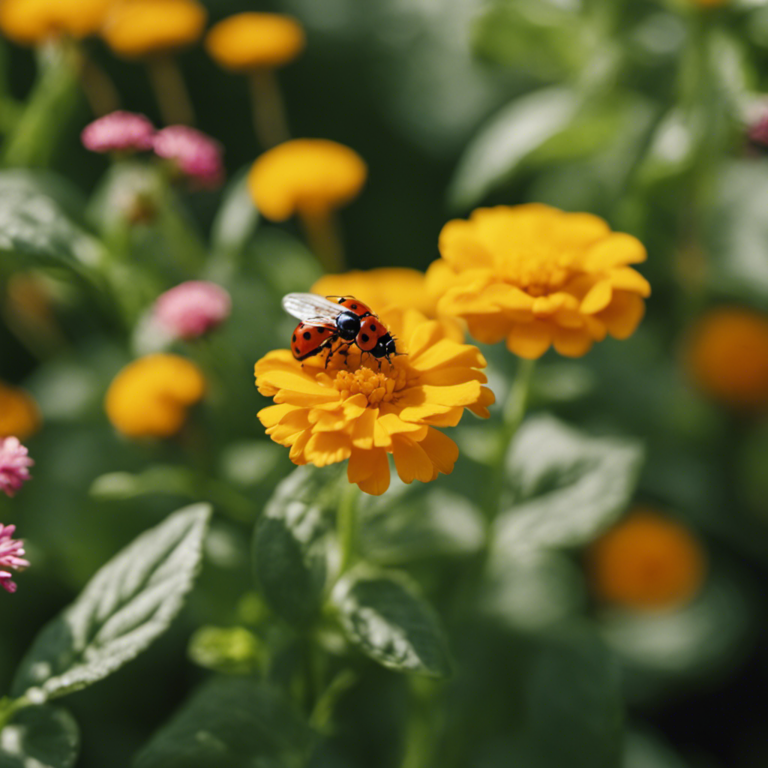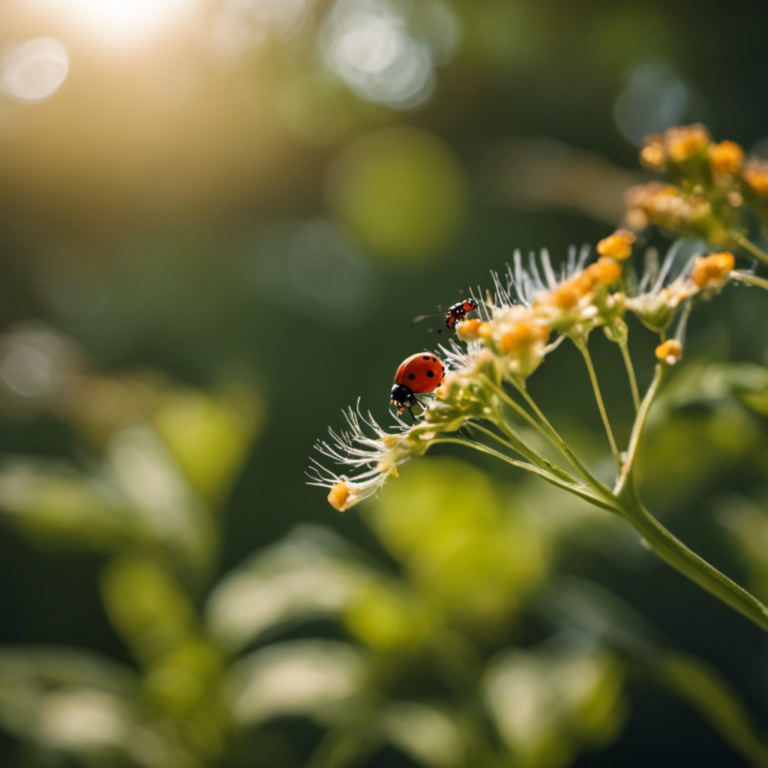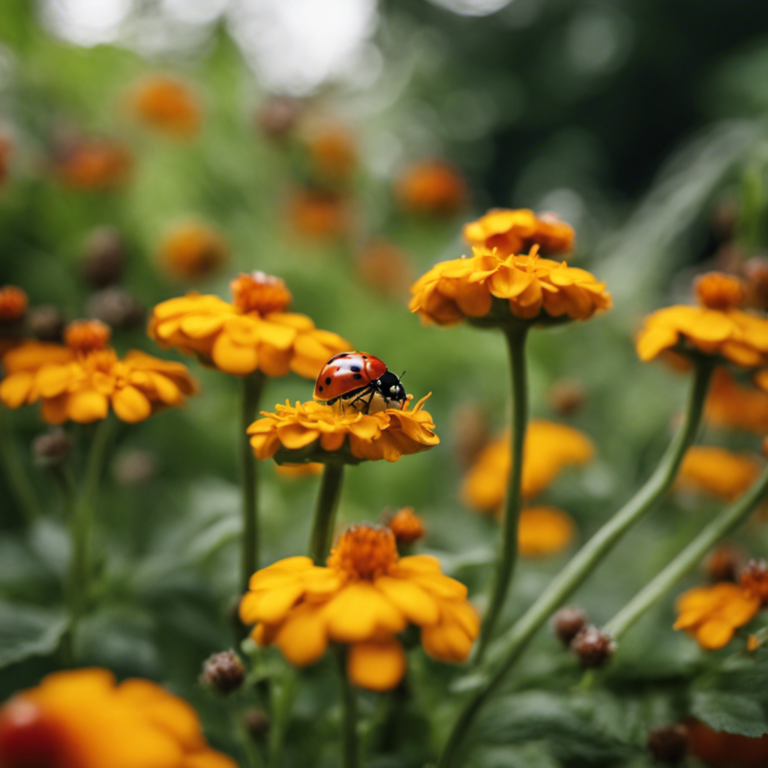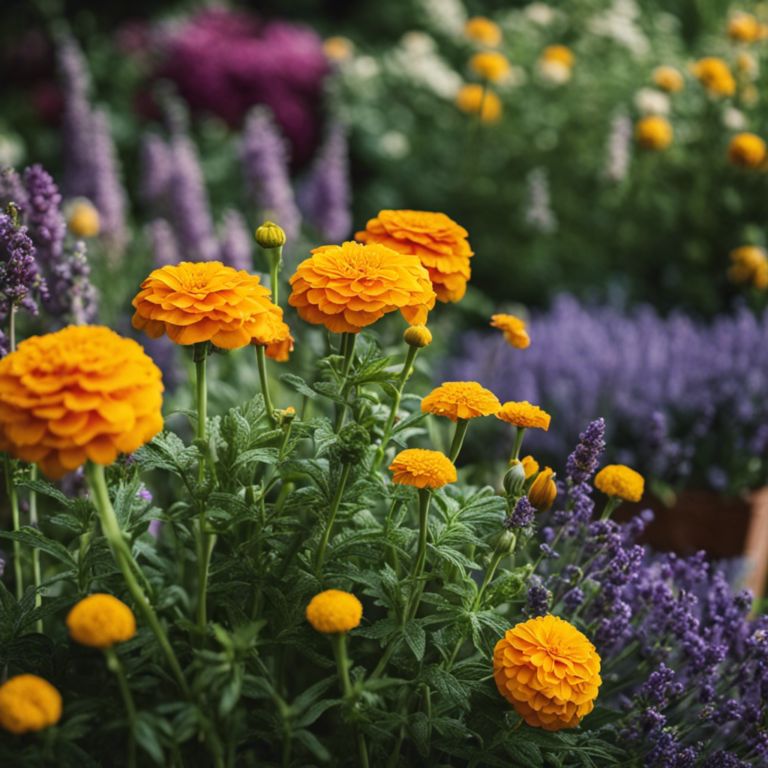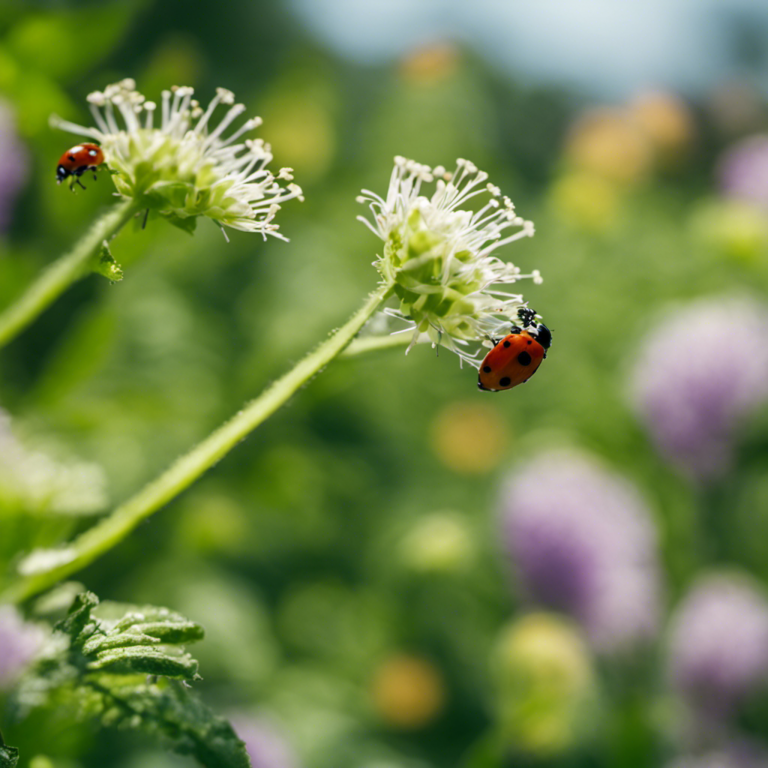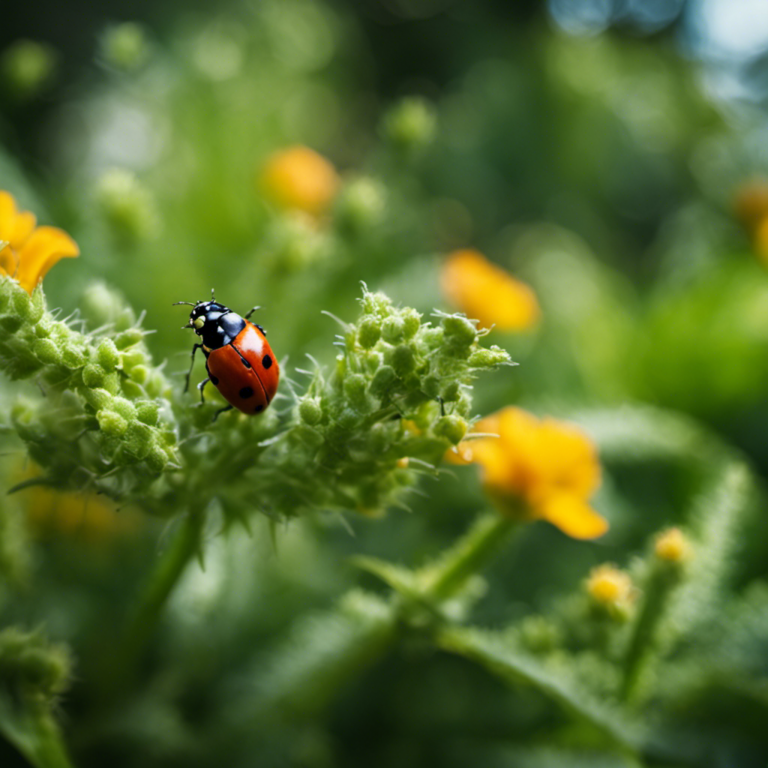Are bothersome pests causing damage to your beautiful garden? Don’t worry! With DIY Natural Pest Sprays, you can take control and transform the way you care for your garden.
Bid farewell to harmful chemicals and welcome a more eco-friendly and healthier garden. In this article, we will guide you on how to create effective pest sprays using common household ingredients.
Prepare to unleash your inner gardener and safeguard your plants from unwelcome visitors. It’s time to seize the opportunity and cultivate a thriving garden naturally.
Key Takeaways
DIY Natural Pest Sprays: Transforming Garden Care
Using DIY natural pest sprays can be a game-changer for taking care of your garden. By using ingredients commonly found in your home, you can effectively keep bothersome pests away without resorting to harmful chemicals. With the right ingredients and application techniques, you’ll easily combat common garden pests and safeguard your plants.
So, why not give it a try? It’s time to transform the way you care for your garden and embrace the power of homemade pest sprays. Your plants will greatly appreciate it!
Benefits of Homemade Pest Sprays
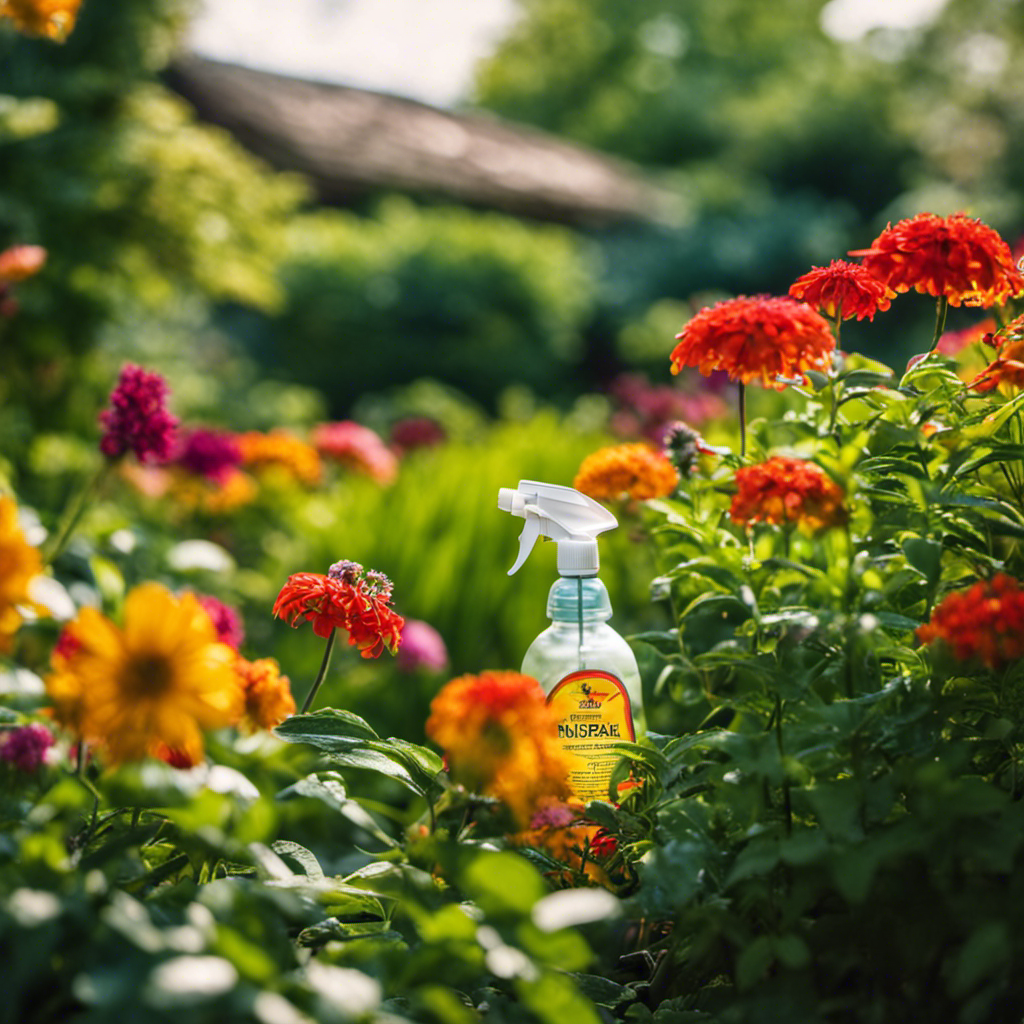
Benefits of Making Homemade Pest Sprays
Using homemade pest sprays offers several advantages for your garden care. Not only are they cost-effective solutions, but they also provide environmentally friendly alternatives to chemical-based pesticides. By creating your own pest sprays, you can save money on expensive commercial products while effectively managing pests in your garden.
Additionally, homemade sprays are made from natural ingredients, which reduces their harmful impact on the environment and the health of your plants. You can easily make these sprays using common household items like vinegar, garlic, and neem oil, making them accessible and convenient.
With homemade pest sprays, you can take proactive steps towards maintaining a healthier and more sustainable garden, all while minimizing your carbon footprint.
Essential Ingredients for DIY Pest Sprays

Creating your own DIY pest sprays requires a few essential ingredients. Organic gardening offers numerous benefits, and using natural methods to repel pests is a safe and chemical-free way to protect your plants.
One important ingredient for DIY pest sprays is garlic. Known for its strong odor, garlic can effectively deter insects like aphids, mosquitoes, and caterpillars.
Another essential ingredient is neem oil, derived from the neem tree, which has insecticidal properties that help control pests such as mites, mealybugs, and whiteflies.
Additionally, dish soap is necessary as it helps the spray adhere to leaves and suffocate soft-bodied insects.
Effective Pest Sprays for Common Garden Pests
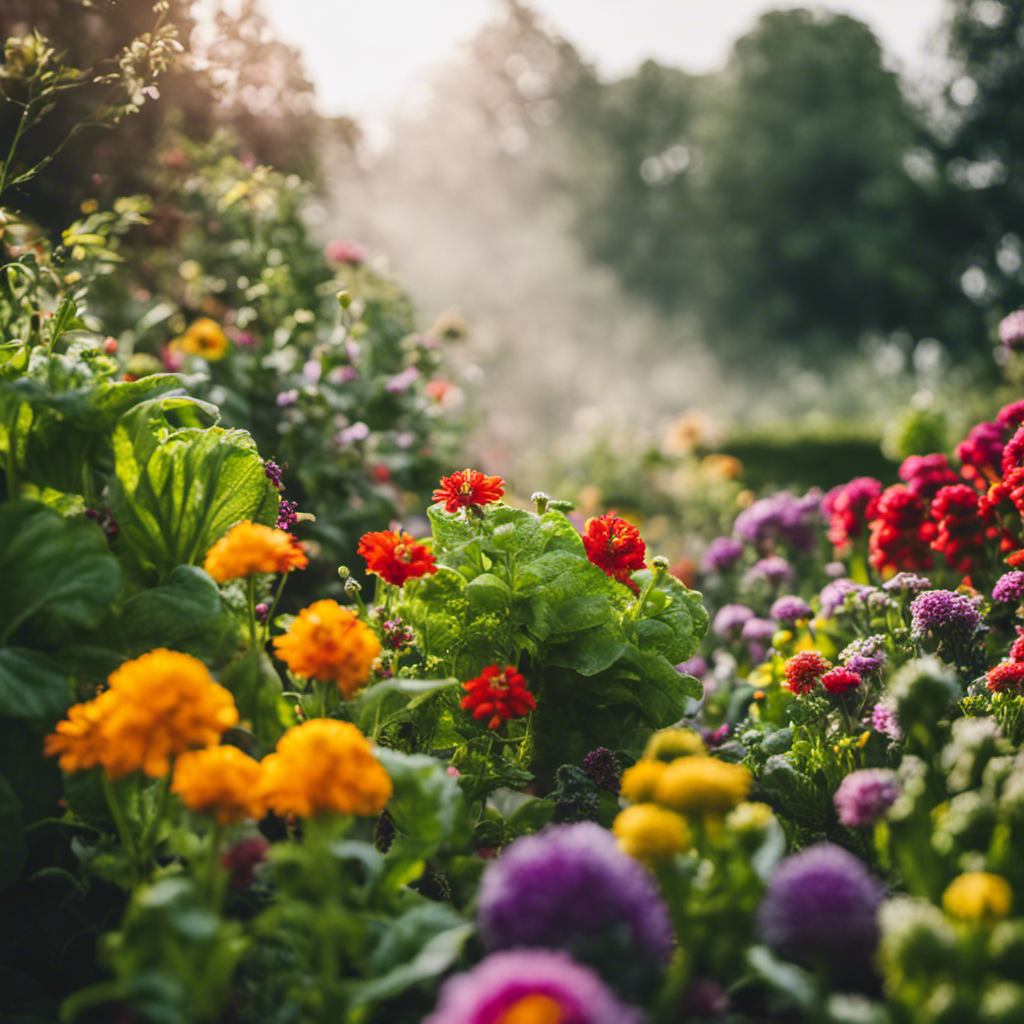
Protect your garden from common pests with effective pest sprays. Using organic pest control methods and natural insect repellents can help keep your garden healthy and thriving. Here are some options to consider:
-
Neem oil: This natural insecticide is effective against a wide range of pests, including aphids, mites, and whiteflies. You can mix it with water and spray it on your plants for maximum effect.
-
Garlic spray: Made by blending garlic bulbs with water, this spray can repel pests like aphids, beetles, and caterpillars. It’s easy to make and safe to use on edible plants.
-
Chrysanthemum oil: Derived from chrysanthemum flowers, this oil contains a natural insecticide called pyrethrin. It’s effective against pests like mosquitoes, ants, and fleas.
-
Soap spray: Mixing mild liquid soap with water can create a simple yet effective spray to control pests like aphids, mealybugs, and spider mites.
Using these natural pest sprays can help you maintain a healthy garden without the use of harmful chemicals.
Application Techniques for Natural Pest Sprays
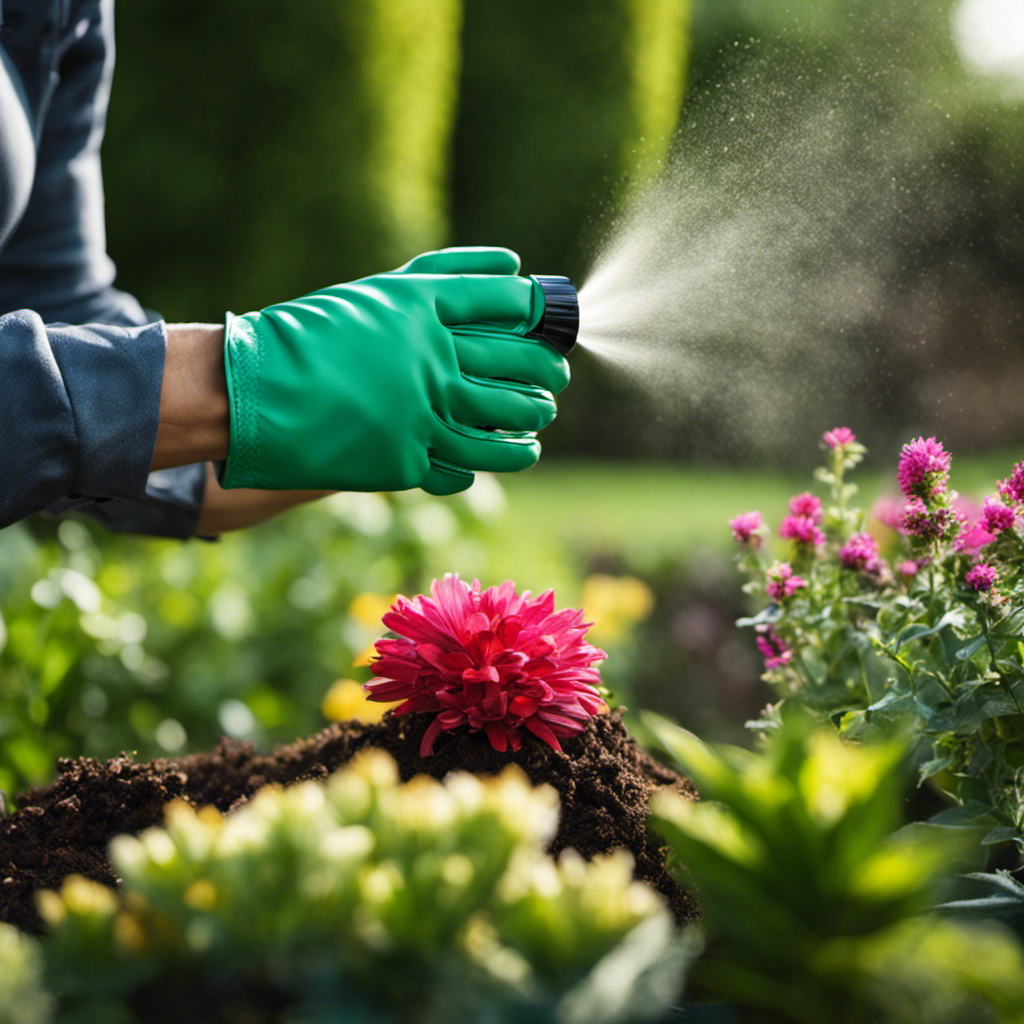
When it comes to effectively applying natural pest sprays, using a spray bottle can be a great option. This allows for precise and controlled application, targeting specific areas or plants that are affected by pests. By doing so, you minimize the risk of over-spraying and wasting the solution.
Additionally, using a spray bottle ensures that the natural pest spray is evenly distributed, providing maximum coverage for effective pest control.
To ensure proper application, it’s important to follow the instructions provided with the product. Some sprays may need to be diluted with water, while others can be used directly. Before each use, make sure to shake the spray bottle well to ensure that the ingredients are properly mixed.
In addition to using a spray bottle, there are alternative pest control methods that can be used in conjunction with natural pest sprays. These methods include companion planting, which naturally repels pests and attracts beneficial insects, physical barriers that create a barrier to prevent pest access, biological control that introduces natural predators or parasites to control pests, and organic pesticides that are non-toxic and safe for the environment.
Tips for Maximizing the Effectiveness of Homemade Pest Sprays
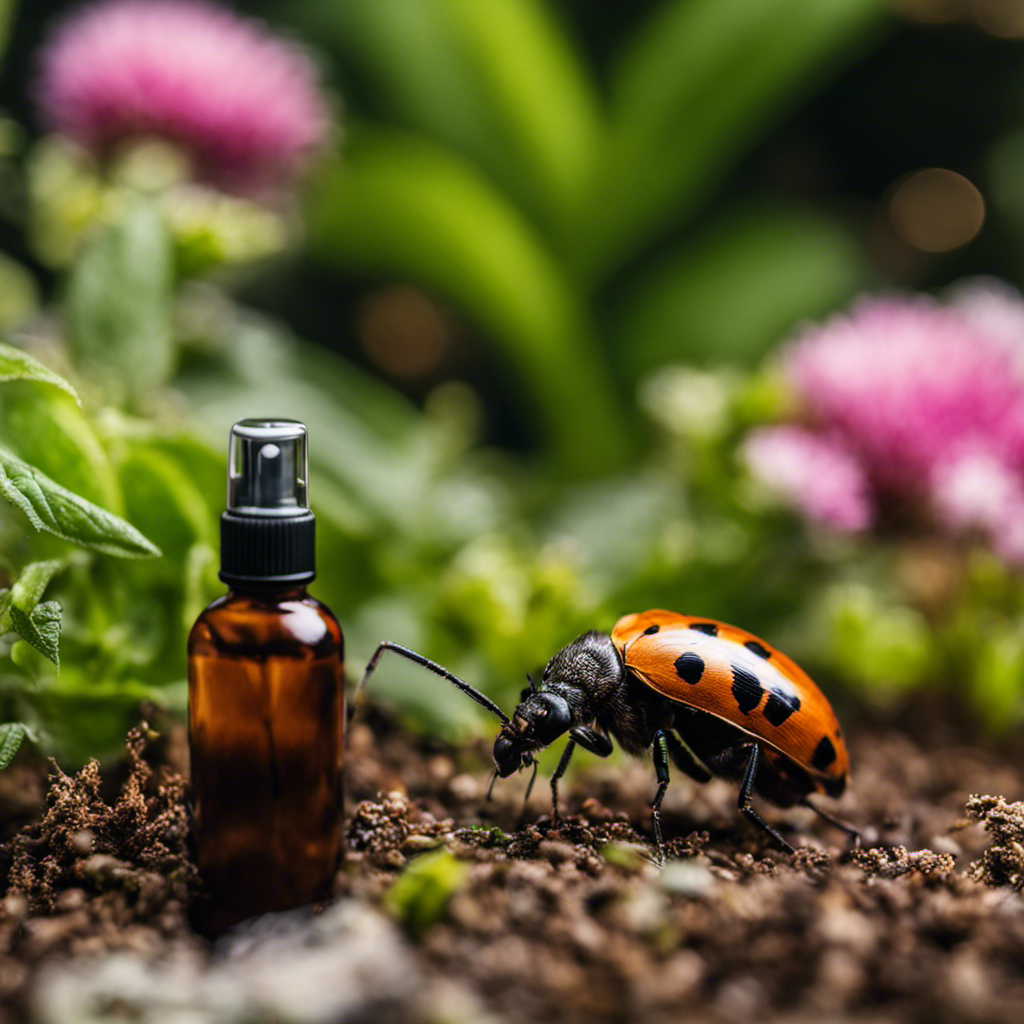
Tips for Maximizing the Effectiveness of Homemade Pest Sprays
To get the best results, it’s important to apply your homemade pest sprays with precision and care. Here are some tips to help you maximize their effectiveness:
-
Before applying the spray, thoroughly inspect your garden for signs of pests. This will allow you to target problem areas and avoid wasting spray where it’s not needed.
-
Follow the recipe instructions carefully and mix the ingredients in the recommended proportions. This will ensure that the spray is strong enough to repel or eliminate pests effectively.
-
Choose the right time to apply the spray. Early morning or late evening, when the weather is calm, is ideal. This will prevent the spray from evaporating too quickly and give it more time to work its magic.
-
Consistency is key. Reapply the spray as needed, especially after rain or heavy watering, to maintain its effectiveness.
Conclusion
DIY Natural Pest Sprays: Transforming Garden Care
Using DIY natural pest sprays can be a game-changer for taking care of your garden. By utilizing ingredients commonly found in your home, you can effectively keep bothersome pests away without resorting to harmful chemicals. With the right ingredients and application techniques, you’ll be able to easily combat common garden pests and safeguard your plants.
So, why not give it a try? It’s time to transform the way you care for your garden and embrace the power of homemade pest sprays. Your plants will greatly appreciate it!
